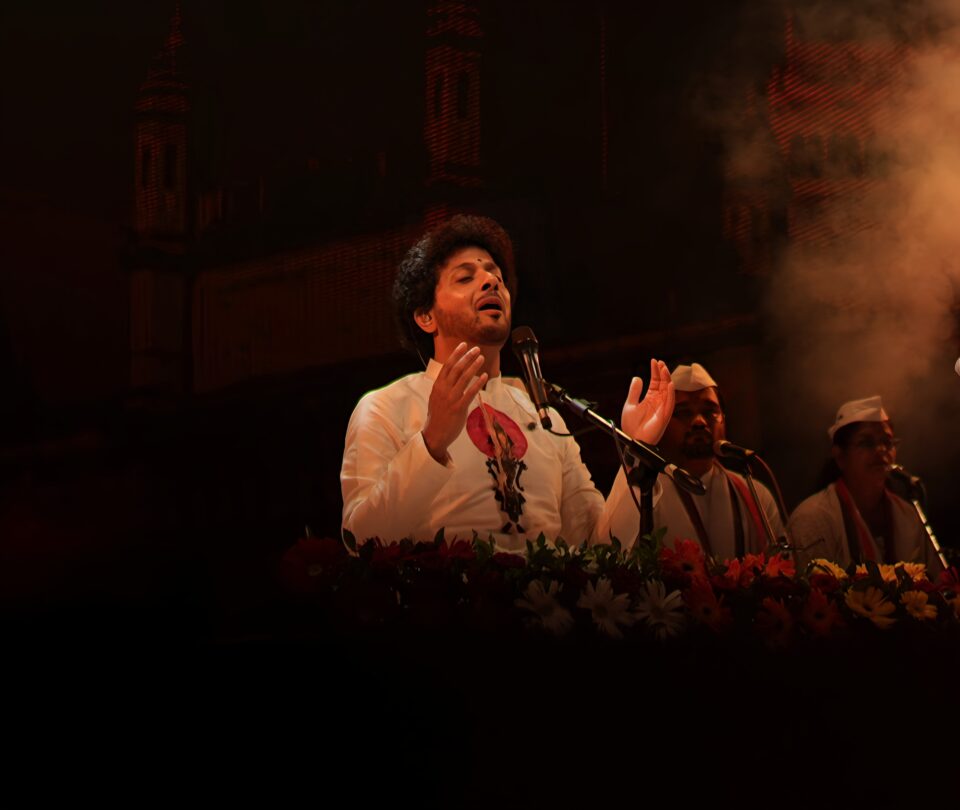Mahesh Kale’s Abhangwari India Tour: ‘I Love To Make People Sing’
The Indian classical vocalist who is best known for his Marathi abhangs talks about education and transcending borders
At the recent Stanford Jazz Festival held in Stanford, California in June, India’s National Award-winning, classically-trained Marathi vocalist Mahesh Kale jammed effortlessly with jazz musicians while retaining the essence of abhang, the Marathi devotional poetry that he’s made part of his concert series Abhangwari.
Following his U.S. show, the Pune-raised, San Fransisco Bay Area-based artist embarked on a five-city run of shows in India, including stops in Mumbai, his hometown Pune, Hyderabad, Chennai and Bengaluru. Concluding on July 21, the artist spoke with Rolling Stone India in an email interview about the tour, music education and more. Excerpts:
Rolling Stone India: How did the U.S. shows come about and what was it like performing with American jazz musicians at the Stanford Jazz Festival?
Mahesh Kale: The SF Jazz show was delightful. It was beautiful to converse with people from different cultures, far away from the Eastern world—people who have lived very different lives, spoken different languages, and experienced diverse cultures. Music is such an inimitable bond, bringing people together in an unfamiliar yet familiar way. That’s how [it] was for me.
What are you doing differently on your India tour? What kind of learning, if any, from the U.S. show are you bringing to these India shows?
Many times, I end up experimenting in the Western world, largely because mainstream audiences are not aware of the nuances of Indian classical music and our culture. This helps me draw a baseline for a universal appeal, which resonates well with Gen Z and millennials here. There’s a lot to learn — being accessible, being able to converse, and just being yourself. The genuineness is something I have realized people appreciate and pick up on. These are a few non-musical ingredients that I have learned in the Western world.
Over the years of performing, have you seen a changed perception of classical music, abhangs and even your fusion performances?
Yes, I have seen a remarkable change over the years. A few things have changed my perspective during my journey, and I think it largely applies to the overall scene as well. The National Award [in 2015, Best Playback Singer (Male) for Marathi film Katyar Kaljat Ghusali] brought me recognition well beyond the typical audience of Indian classical music because my song, although classical, was featured in a movie and had a more universal appeal. After that, when I was judging a T.V. show, something atypical happened. A classical musician appearing every day for weeks over an extended period of about three months, during prime time, in the homes of millions of people. There, I was able to share my thoughts and music, which sparked a lot of curiosity, enthusiasm, and increased viewership. I think these are all essential ingredients for growing awareness of Indian classical music.
As an educator, The Mahesh Kale School of Music has brought workshops and more to several countries. What can you share about your approach to teaching music in different countries, to people across different levels of interest and understanding?
I am deeply passionate about teaching and have been doing it for a long time. Part of the reason is that when you are teaching, you become more accountable for what you impart. I continue to teach for about 10-12 hours every week even now. The workshops I conduct are more of an immersive experience. I believe that knowledge becomes wisdom when it passes through the path of experience. Once you have experienced something, you will try to seek it again. They are largely devoid of information and packed with experience. It’s like you love being a musician for that time in the workshop and discover the mysticism that a musical mind experiences when making music.

What was the stage setup like for the India shows?
In these shows in India, I have a rather elaborate ensemble of accompanying artists. I have a harmonium and tabla, which are typical accompaniments, but also a mouth organ, a violin, a pakhawaj, a multi-percussionist and a flute. Since abhang is about chorus singing, I have 10 to 12 of my students, different in each city, join me for the chorus. Additionally, there is an interesting experiment to merge fine arts with performing arts. This involves theme-based interpretive artwork. It is an engulfing and immersive experience. I love to make people sing. All of these elements create fond memories. I just finished my concert in Mumbai, and I am glad that I received an outpouring of messages from the audience.
What else is coming up through 2024?
I am hoping to do more collaborations and create more sonically rich songs that have the spirit and essence of Indian classical music but are able to transcend borders.




